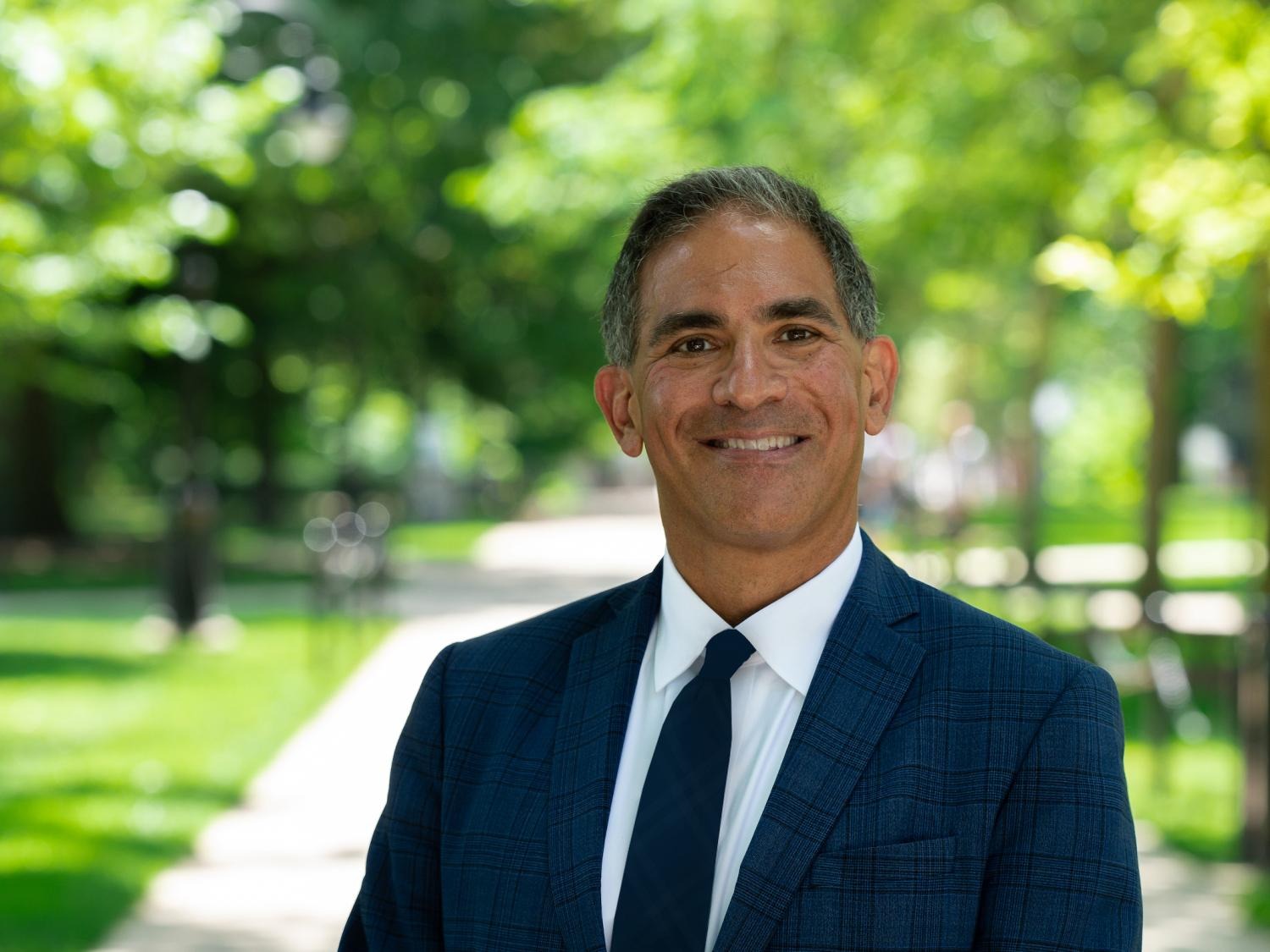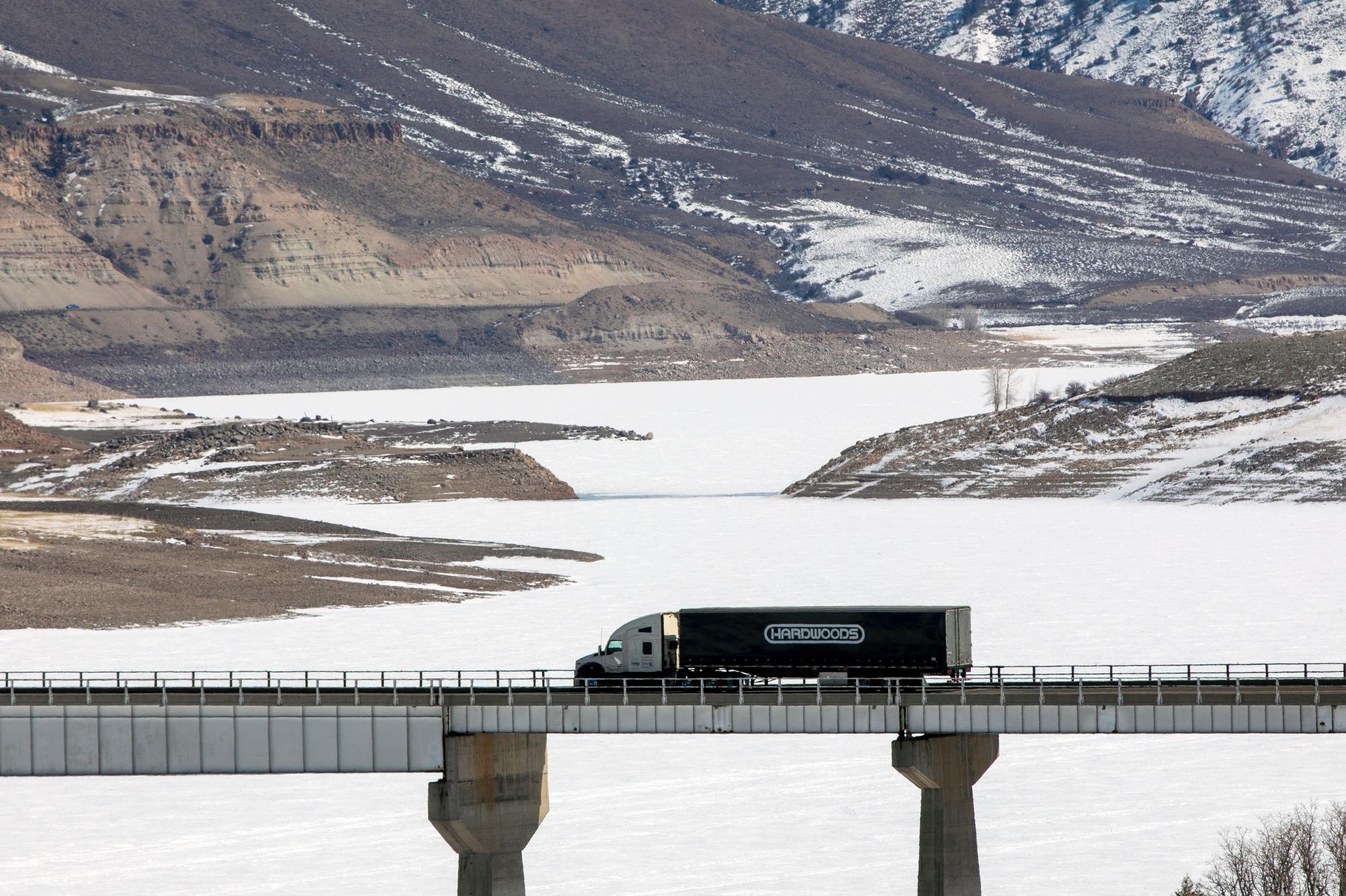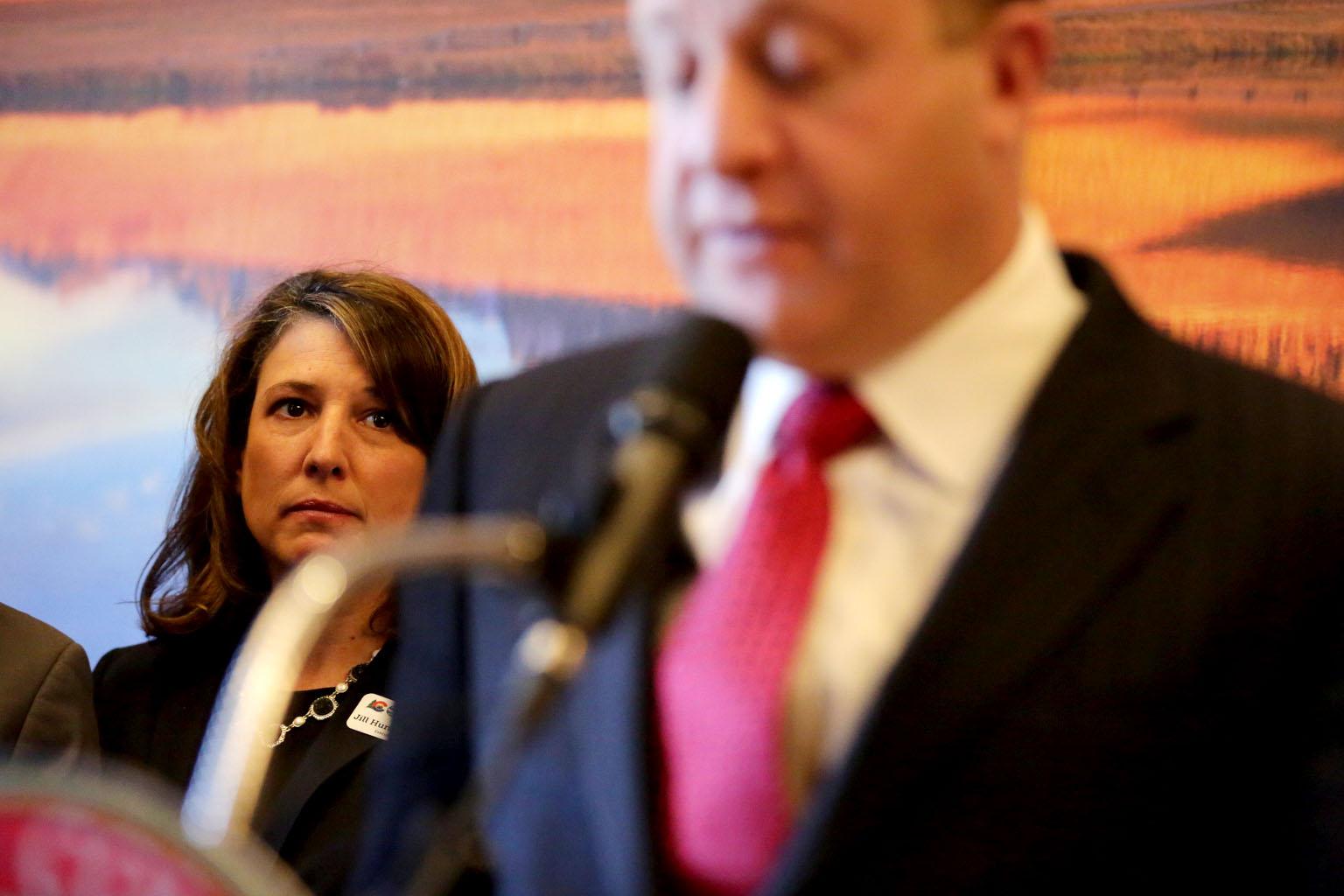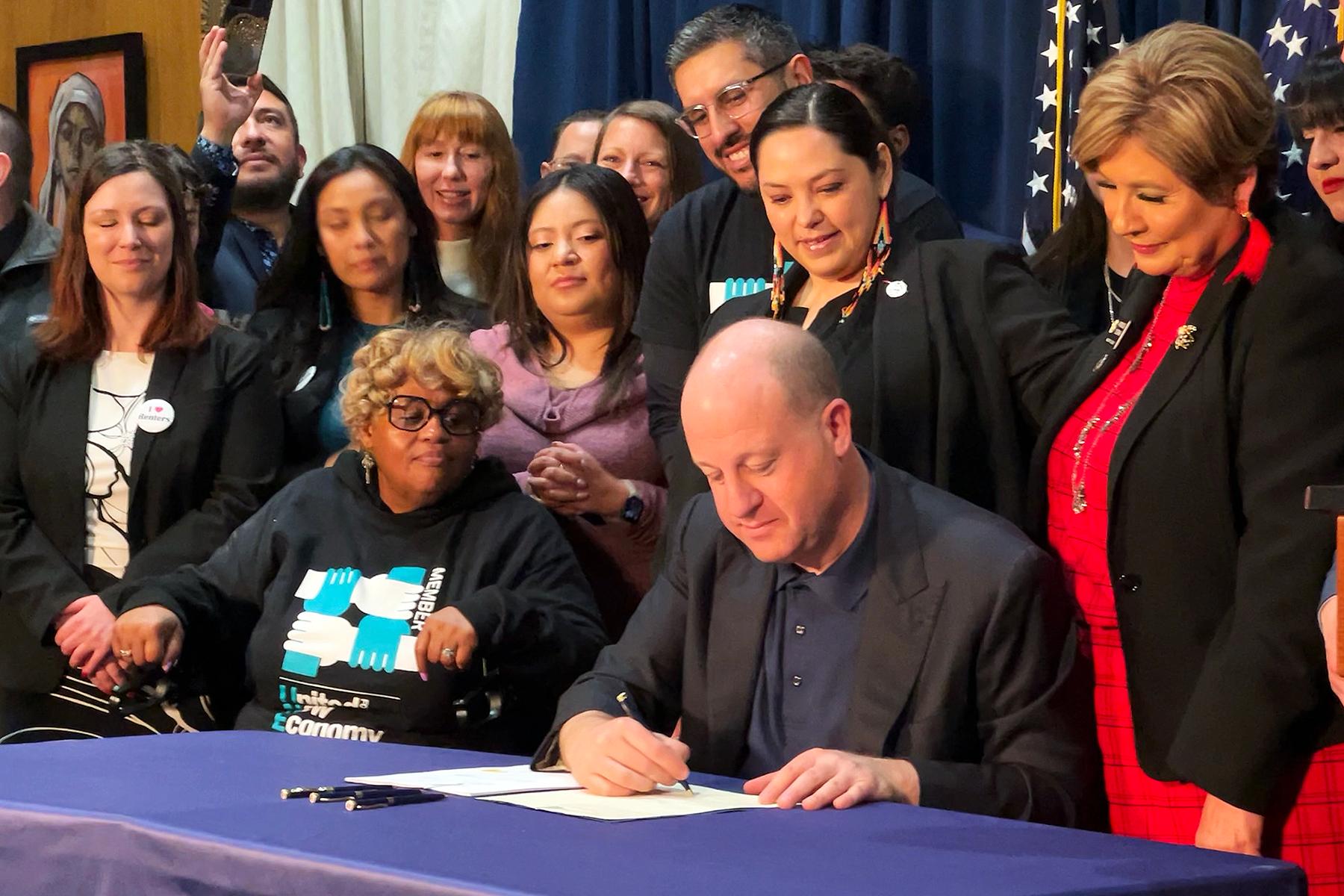Originally published on May 30, 2019 4:34 pm
This post was updated May 28, 2019 at 9:15 p.m. to include the leastest outbreak numbers and an additional infographic.
Measles have reached the highest numbers in 25 years, with more than 900 cases reported so far to the Centers for Disease Control and Prevention. The Mountain West is especially vulnerable. According to CDC data, too few kindergartners in our region are fully vaccinated against measles, mumps and rubella. One Colorado family took that to heart — and then things got personal.
Kyle and Julie Mullica knew that 2019 would be nuts, starting with this fact: Their third child was due to enter the world the same week that Kyle would be sworn in as a Colorado state representative.
“Yeah,” says Kyle Mullica, “Two days before.”
The baby arrived just in time for everyone to attend the swearing in ceremony: Kyle, Julie, their 5-year-old, 3-year-old and 2-day-old.
“It was just such a big moment,” says Julie. “A big climax of so much hard work.”
The trouble started around that same time, when Kyle attended a presentation for incoming lawmakers. He learned there that Colorado is last in the nation for kindergarten vaccination against measles, mumps and rubella. That’s a big deal because if vaccination rates fall below about 95%, it means a case of the measles has a much better chance of spreading and causing an outbreak. He came home and told Julie.
“I was shocked, he was shocked.” says Julie. “I don't think anyone knew that we were that bad.”
Kyle is an emergency room nurse; he’s treated people with vaccine-preventable illnesses. And Julie is working on a doctorate in public health in addition to being an infection preventionist with SCL Health. So, they knew what a big deal this was.
“I mean, no one likes to be last in anything,” says Julie, especially when kids’ lives are at risk.
So, Kyle started drafting a bill. Colorado is one of the easiest states in the country for parents to opt out of vaccinating their kids. His idea was to follow some other states, like California, Mississippi and West Virginia, and get rid of exemptions for personal or religious reasons -- basically any reason that wasn’t medical.
That’s when the weird anonymous messages started.
“Talk about karma,” he says. “You know, ‘Hoping that your kids don't die, but karma has its way.’”
There was a lot of not anonymous pushback, too. Even Colorado’s democratic governor didn’t like the draft bill, so Kyle went back to the drawing board.
“I went back and I talked to the experts and looked at what are some other solutions that we could do,” he says.
Eventually, the bill got watered down a lot. Religious and personal exemptions would remain. But parents would have to go to a local health office to turn in a form in order to get those exemptions.
It wasn’t the sweeping public health move that Mullica had hoped for, but he thought it was a step in the right direction. In order to become a law, though, the bill would have to go through a lot of steps -- two votes in the House, then two votes in the Senate.
Fiery hearings lasted hours -- 14 hours, in one case. Kyle was at the capitol morning, noon and night. Julie says the family went into what they call ‘survival mode.’
Finally, on a Saturday afternoon, the bill went to the House for a full vote -- and it passed.
“I was actually listening to the whole [segment] that Saturday,” says Julie. “And I was just so excited for him.”
But someone somewhere was not excited. On the same day the bill passed the House, someone somewhere -- who at this point remains unidentified -- was drafting an email to Kyle. It would sit in his inbox for two days before he’d see it.
“Calling me a Nazi,” he says. “And then, ‘We hope your house burns down with your family inside of it’ or ‘We're going to burn your house down with your family inside of it.’ Something along those lines.”
That hit the family hard.
Law enforcement started guarding the Mullica home. The kids started calling them the “flashy lights guys.”
“My number one job in this world is being a dad. I'm down there for them. I’m down there to make their life better,” he says. “To think what I'm doing puts them in jeopardy terrified me.”
The bill, meanwhile, was still doing well. It made it through one part of the Senate. But that forward momentum didn’t last. On the second-to-last day of the session, the bill got delayed. Clogged in the legislative calendar. It never made it to a final vote.
“For me, it was devastating,” says Kyle.
And while the bill might be dead, the anonymous anger it spawned is still a part of their lives. Kyle says hearing a knock on the door makes them jump.
“I was trying to be proactive,” he says. “I don't want to see a kid get hurt. I don't want to see having an outbreak and costing the state millions of dollars to deal with. And, God forbid, I don't want to see a child die.”
Analysis by the Mountain West News Bureau shows that for the 2017-2018 school year, there were more than 1,100 schools and kindergartens with more than 50 students and less than 95% of them on record as being fully vaccinated against the measles. That includes more than 500 schools and kindergartens that dropped below the 90% line.
“As we sit right here right now, we're still at risk for an outbreak,” says Mullica.
The next legislative session doesn’t start until January 2020. In the meantime, there’s an emergency room full of people to treat, a trampoline to build in the backyard and -- fingers crossed -- no measles outbreaks.
This story was produced by the Mountain West News Bureau, a collaboration between Wyoming Public Media, Boise State Public Radio in Idaho, KUER in Salt Lake City, KUNR in Nevada and KRCC and KUNC in Colorado.
Copyright 2020 KUNC. To see more, visit KUNC.








